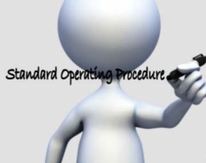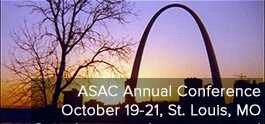| I received a nice card in the mail this week with these kind words. These always helps reaffirm that my efforts are worthy to someone. Jim, Thank you so much for always being so willing to help us and offer wisdom. We feel so blessed to have you working with us and never want to take advantage of your kindness. Thanks! |
|
0 Comments
Attending the annual
American Society of Agricultural Consultants meeting in St. Louis.
How Decisions Get Made and By Who Now is a good time to move into another phase of your management system that explores the concept of how your family business is organized…how decisions get made and by whom? There are multiple reasons why this is becoming increasingly more important in today’s modern agriculture. A bigger and more diversified operation with multiple entities is commonplace in today’s agricultural world. This is simply a matter of survival which requires growth to remain competitive. Certainly growth can come in many forms, but suffice it to say that the capital intensity and high-tech nature of modern agriculture demands more and more skills than in years past. As farms grow, more partners and owners work together. This increased complexity requires a more defined organizational structure.
Developing a process for improving your business planning including personal development plans for your team, standard operating procedures, setting policies and collecting, analyzing and responding to ever increasing record-keeping systems are a few additional areas to explore that will help further systematize your business in order to facilitate a management transition for your family business. Once management is transitioned, ownership transition is within reach. If you recall, the most successful transitions start with transferring responsibility, then management and eventually, ownership. We’ll begin with a short segment for today and continue with this next phase of discussions in subsequent posts. Transferring Responsibility - Delegation To keep things simple, there are only a few questions that must be answered:
It has already been established that today’s agriculture is too complex for one person to be technically skilled to handle all areas of the business. At the same time, making everyone responsible for everything is a fool’s theory. So, we must specialize and divide areas of responsibility. A common client question reasonably follows: “How do we structure things and keep everyone happy?” Well that’s the $64,000 question!
Next time -- a discussion about the need for job descriptions, performance reviews, guidelines for future leadership and how to come up with a plan to transition management. An article about meetings? SHOOT. ME. NOW.
Of the many reasons why meetings are so energy-sucking is because the meetings have limited structure, there are not clearly defined areas of responsibility or standard practices for performing routine activities. Not every decision to be made requires a committee, nor attended by everyone in the business. To become more effective with your family business’s meeting structure, answering the who, what, when, why and where can be very simple to execute: • How many and what types of meetings are applicable to your family farm? • Who should attend and participate in the various meetings? • What items are appropriate for any given meeting? • When and where will meetings take place? • Why are we having this meeting and what are the expected outcomes?
Agenda setting is a key to making sure that meetings remain focused on the appropriate topics for those attending. Before moving along, it is prudent to talk about who sets the agenda. If you have adopted the practice of defining roles and responsibilities inside your business, this is another to add to someone’s job description. So, let’s assume that the agendas for the various types of meetings in your business will be the responsibility of a designated person…a meeting planner. The meeting planner has the task of recognizing that inside almost every business there are employees, managers and owners. Agenda items need to be relevant to those attending in their various capacities (staff, manager, owner). Staff meetings are generally intended to discuss tactics and day-to-day business activities. These will vary in frequency. On the family farm, there is often a need for short, quick daily “stand-up” meetings to discuss immediate needs and planning. Daily “Stand-Up” meetings are just that…standing. Don’t sit down. The goal is to make it quick, efficient and productive. Weekly meetings may be more appropriate during slower times and can be used for outlining goals for the week and assigning activities. Ad-hoc meetings can be called for training and internal announcement type information. Management meetings are intended to explore bigger picture issues like planning, defining job responsibilities, coordination of resources, deciding on priorities, determining how to gather and analyze data and employee reviews and training programs. These meetings can be weekly, monthly, quarterly and annually. It depends on the agenda and the desired outcome of the meeting. Ownership and board meetings should be conducted at least annually and involve key stakeholders, owners and spouses. Many times, there is a need for these to take place quarterly and monthly, especially as your family business becomes more complex. Whether they are involved in day-to-day activities or not, spouses are a big part of ownership meetings for family businesses. They act as silent partner in the business by virtue of being married to an owner. These meetings are appropriate for strategic planning issues, general policy setting for operations, dividend distribution and management compensation. There are several reasons for having a meeting. The expected outcomes from various agenda items fall into one of three categories: 1) Give information, 2) Get information, or 3) Develop options or make decisions. These need to be clear when agendas are shared with attendees. If attendees are not clear, some may be trying to make a decision while others are simply sharing information. Does that make sense? Some best practices for helping ensure productive meetings include trying to make sure that attendees have balanced participation. Locate the meeting where business can be conducted without interruption, including cell phone usage during the meeting! Whoops, I let that pet-peeve out of the box. Toddlers should not be present and the TV should be turned off. Holding meetings at the kitchen table is not the best practice and is conducive to interruptions and perceptions of low seriousness. Location is important. Rotating locations can add some variety and helps level the “home turf” advantages that can subconsciously creep into the situation. Schedule meetings when they are appropriate. Don’t schedule a 4 hour long-term planning session during the middle of harvest. Keeping meeting notes and using them as a basis for follow-up helps eliminate those decisions that are sometimes made where no one ever gets busy with the specific action items. Meeting notes also help create an environment of personal accountability. If everyone knows that there will be follow-up, odds increase that the work will actually get performed. You may have experienced it – everyone is excited about an idea, but it never gets implemented because the “who”, “what” and “when” of the idea were never decided upon. Several months later, the same discussion often takes place again…a complete waste of time. General Rules for Business Meetings and Guidelines for Personal Accountability can provide serious productivity and accomplishment to various meetings in your business. Coming to an agreement on these things before holding meetings is a best practice and something we can explore in the near future.
When the family farm was owned by one family member, communication was generally “one-way” and therefore, fairly easy. As more successors and/or partners join, or contemplate joining, the family farm business, communication and behaviors can get more complicated. This Code of Conduct and the process of developing it helps increase the appreciation and recognition for everyone’s individuality. It helps ensure that behaviors are something mutually agreed upon rather than imposed by senior leadership. It provides a guideline for more constructive and productive interactions. As with most things in life and business…things change. Therefore, these things are not written in stone and can be edited as time marches on. If you have been with us for a while, you know that this article is only about one component of your family farm’s communication platform, which in turn is an important part of creating a professional management system for your family business
 A Communications Pledge, or Code of Conduct, is also a reflection of your values in action. Your behaviors reflect what you value. By working with one another on this project, it offers team members a chance to develop a written collection of the rules, principles and expectations about behavior and relationships that they consider significant and fundamental to the successful operation of your family farm business. Also known as a Code of Conduct, it can spell out these standards and help further systematize your professional management system. How this is finally developed is up to you…it’s your family business. To help get you started on this exercise,send me an email requesting a sample Code of Conduct, a Communication Pledge or both.  Outside Business Activities -- Another component to consider is your team’s policy in regard to individual owners’ (or potential owners) outside business activities, outside investments or their possibilities. Ever thought about that? How is that handled? Ahhh…good question Grasshopper. For example, is it acceptable that a successor in a senior management position takes on a major commitment in a voluntary role with an industry association? Yes, no, maybe. If it takes time away and significantly impacts job performance and the business, maybe not. If the activity complements the business and leads to further education and networking opportunities and the business can handle the departure, then maybe it should be pursued. How about sharing in or simply disclosing outside investment opportunities? Full and open disclosure among business partners seems prudent. But, if you have never discussed it, how can everyone be on the same page? You can’t be, necessarily.
The most successful multi-generation family businesses share outside business activity and investments with one another. Oftentimes, they invest together. Is that mandatory? Of course not. So, why is it important and generally a good practice? How would you feel if your business partner invests in something, doesn’t share it with you, then makes a killing and now has millions and millions? Of course you would be happy for him…but there might also be a little bitterness. When big discrepancies in personal wealth develop between business partners, especially siblings and cousins, it can become more difficult to keep the team together. There is also the trust-building factor that is accompanied with the sharing of outside investment opportunities. Sharing helps create and foster the spirit of generosity, “team” and looking out for one another. These were some simple examples of outside business activities to be discussed and agreed upon. If you put your mind to it, I am certain you could come up with a dozen other areas. So give it a whirl. See what you and your family business team members come up in these two areas of your farm management system – A Code of Expected Behavior and an Outside Business Activity Guideline. While doing so, try to pay attention to the benefits of the actual process, as much as the final prepared documents. Because that is where the real value is derived…working together. Good luck!
Last week we began a series of discussions about a Deliberate Communication Platform for your family business. Namely...
"A prearranged and agreed upon way in which information, ideas, opinions and decisions are shared among the various stakeholders in your family business.” Again....and why did I start that discussion? |
Categories
All
Archives
June 2020
Author
|








 RSS Feed
RSS Feed
